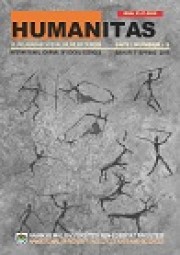WERKGESCHICHTE OHNE WERK: ORHAN PAMUKS SCHNEE AUS DEKONSTRUKTIVER PERSPEKTIVE
GENESIS OF A LOST MANUSCRIPT: ORHAN PAMUK’S SNOW FROM A DECONSTRUCTIVE PERSPECTIVE
Author(s): Onur Kemal BazarkayaSubject(s): Literary Texts
Published by: Namık Kemal Üniversitesi Fen-Edebiyat Fakültesi
Keywords: Orhan Pamuk; Snow; Franz Kafka; Deconstruction; Différance; Understanding; Genesis of a Lost Manuscript
Summary/Abstract: Deconstruction has hardly ever been applied as a method to the analysis of Orhan Pamuk’s Snow, which is surprising because the novel itself is deconstructive to some extent. The following article addresses this issue by providing a deconstructive view of the text according to the approach of Jacques Derrida. The paper starts with a short account of Derrida’s understanding of texts as universal “differences and traces of traces“. This perspective is exemplified with the aid of the metaphor for snow and Franz Kafka’s Castle. In connection with the latter, Derrida’s thoughts about “différance“, which thwarts the presence of meaning, are explained as well. The following section addresses Pamuk’s depiction of a “suicide epidemic“ which is combined with the complex issue of headscarf. The attempts of the protagonist Ka to discover the reasons of the suicides are futile because, as will be shown, individual cases are affected by postponements of meaning, which are related with the notion of “différance“. Understanding is also a problem for the narrator Orhan. The hypothesis developed in the concluding section of the analysis is that he is in fact narrating a deconstructive genesis of a lost manuscript. The collection of Ka’s poems titled Snow, which Pamuk’s novel is about for the most part, has disappeared. Meanwhile, the replacement of the poems with informations about the circumstances of their creation makes the contextual socio-cultural problematics apparent.
Journal: Humanitas - Uluslararası Sosyal Bilimler Dergisi
- Issue Year: 3/2015
- Issue No: 05
- Page Range: 49-64
- Page Count: 15

